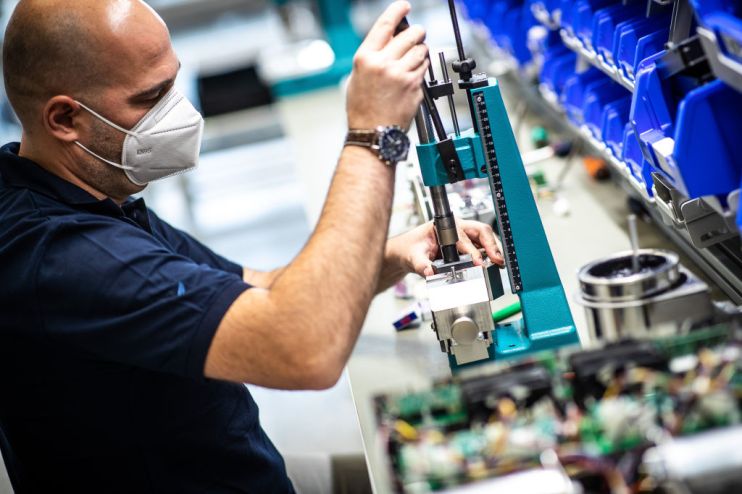UK manufacturers’ costs rise at fastest pace in a decade

UK manufacturers’ costs rose at their fastest pace in a decade last month, adding to concerns price rises in the British economy may be much stickier than expected after separate data published today shows consumer price inflation jumped at its fastest rate on record.
Input prices – typically materials used in the day-to-day running of manufacturing businesses – jumped 11 per cent in August, the fastest rate of growth since late 2011, according to the Office for National Statistics (ONS).
The construction industry warned that the bump in prices would put contractors’ margins under even more pressure over the coming months.
Soaring oil and fuel prices triggered by a resurgence in global demand as economies have emerged from Covid-induced lockdowns was the main contributor to manufacturers’ cost increases.
Over the last 18 months, oil prices have tripled after initially collapsing to record lows during last spring’s global lockdowns.
Price for metals was the second largest contributor to overall input price rises. This was mainly driven by basic iron and steel and of iron-alloys for domestic market.
Supply chain snarl ups caused by ongoing Covid disruption at ports and shipping delays has engineered a shortage of raw materials. A paucity of workers has constricted suppliers’ production levels, further intensifying a scarcity of inputs.
Meanwhile, high demand for raw materials resulting from businesses ramping up production of goods is rubbing up against constrained supply levels. These factors are compounding to put upward pressure on input prices.
Higher production costs prompted manufacturers to raise prices for products to protect margins. Factory goods prices shot up 5.9 per cent over the last year.
Surging manufacturers’ costs come as the ONS released separate data today showing annual consumer price inflation rose at its fastest rate on record, jumping 1.2 percentage points to 3.2 per cent in August, up from two per cent in July.
Although economists said that the jump in CPI was likely to be a temporary one, they warned that producer prices could keep rising in the coming months.
PwC economist Hannah Audino said: “We expect inflation to continue to follow a bumpy path this year, as different factors feed irregularly into the monthly data.
“Base effects should dissipate somewhat next month, but rising producer price inflation – due to higher input costs such as freight and raw materials – could begin to be passed through to consumers over the coming months, especially as businesses look to recoup revenues lost during the pandemic.”
Mark Robinson, group chief executive at SCAPE, one of the UK’s leading public sector procurement authorities, said: “Coupled with the ongoing impact of material and labour shortages, the record rise in inflation reaffirms the significant challenges the construction industry faces following an extended period of post-lockdown growth.
“While inflation is likely to ease towards the end of the year, forecasts give good reason to believe that contractors’ already slim margins will come under increased pressure as we head into the winter months. With the pricing of projects and the availability of resources likely to be in flux, it’s critical that projects still maintain momentum through procurement and delivery.
“With private investment likely to be stymied for the time being, public sector spend will play an important role in maintaining confidence and should set the standard in terms of managing risk across the supply chain – which includes open dialogue and prompt payment practices to boost SMEs’ cashflow and avoid smaller suppliers being unfairly squeezed.”